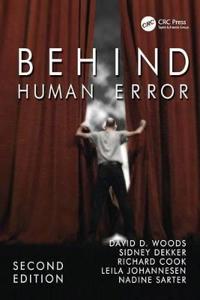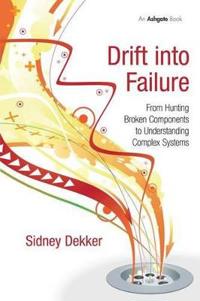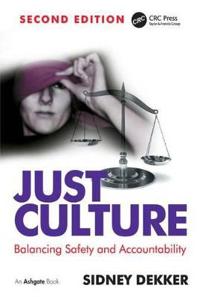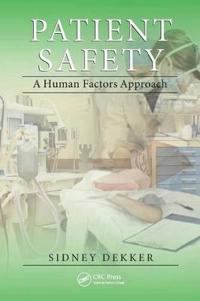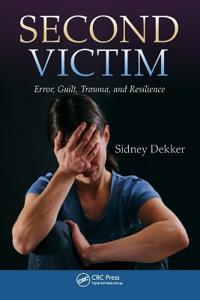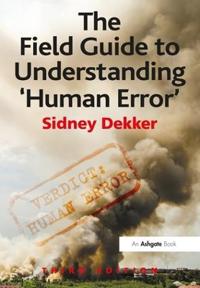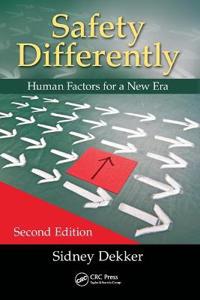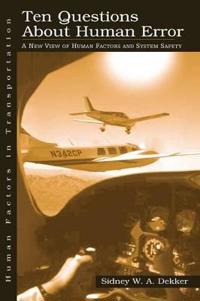The Field Guide to Understanding Human Error (Häftad)
avSidney Dekker
ISBN: 9780754648260 - UTGIVEN: 200605When faced with a human error problem, you may be tempted to ask 'Why didn't they watch out better? How could they not have noticed?'. You think you can solve your human error problem by telling people to be more careful, by reprimanding the miscreants, by issuing a new rule or procedure. These are [...]
Behind Human Error (Inbunden)
avDavid D. Woods, Sidney Dekker, Richard Cook
ISBN: 9780754678335 - UTGIVEN: 201008Human error is cited over and over as a cause of incidents and accidents. The result is a widespread perception of a 'human error problem,' and solutions are thought to lie in changing the people or their role in the system. For example, we should reduce the human role with more automation, or regim[...]
Behind Human Error (Häftad)
avDavid D. Woods, Sidney Dekker, Richard Cook
ISBN: 9780754678342 - UTGIVEN: 201008Human error is cited over and over as a cause of incidents and accidents. The result is a widespread perception of a 'human error problem,' and solutions are thought to lie in changing the people or their role in the system. For example, we should reduce the human role with more automation, or regim[...]
Drift into Failure (Häftad)
avSidney Dekker
ISBN: 9781409422211 - UTGIVEN: 201102What does the collapse of sub-prime lending have in common with a broken jackscrew in an airliner's tailplane? Or the oil spill disaster in the Gulf of Mexico with the burn-up of Space Shuttle Columbia? These were systems that drifted into failure. While pursuing success in a dynamic, complex enviro[...]
Just Culture (Häftad)
avSidney Dekker
ISBN: 9781409440604 - UTGIVEN: 201206A just culture protects people's honest mistakes from being seen as culpable. But what is an honest mistake, or rather, when is a mistake no longer honest? It is too simple to assert that there should be consequences for those who 'cross the line'. Lines don't just exist out there, ready to be cross[...]
Patient Safety: A Human Factors Approach (Häftad)
avSidney Dekker
ISBN: 9781439852255 - UTGIVEN: 201105Increased concern for patient safety has put the issue at the top of the agenda of practitioners, hospitals, and even governments. The risks to patients are many and diverse, and the complexity of the healthcare system that delivers them is huge. Yet the discourse is often oversimplified and underde[...]
Second Victim (Häftad)
avSidney Dekker
ISBN: 9781466583412 - UTGIVEN: 201304How do people cope with having "caused" a terrible accident? How do they cope when they survive and have to live with the consequences ever after? We tend to blame and forget professionals who cause incidents and accidents, but they are victims too. They are second victims whose experiences of an in[...]
The Field Guide to Understanding 'human Error' (Pocket)
avSidney Dekker
ISBN: 9781472439055 - UTGIVEN: 2014-12When faced with a 'human error' problem, you may be tempted to ask 'Why didn't these people watch out better?' Or, 'How can I get my people more engaged in safety?' You might think you can solve your safety problems by telling your people to be more careful, by reprimanding the miscreants, by issuin[...]
Field Guide to Understanding 'Human Error' (E-bok)
avProfessor Sidney Dekker
ISBN: 9781472439062When faced with a 'human error' problem, you may be tempted to ask 'Why didn't these people watch out better?' Or, 'How can I get my people more engaged in safety?' You might think you can solve your safety problems by telling your people to be more careful, by reprimanding the miscreants, by issuin[...]
Safety Differently (Häftad)
avSidney Dekker
ISBN: 9781482241990 - UTGIVEN: 2014-07The second edition of a bestseller, Safety Differently: Human Factors for a New Era is a complete update of Ten Questions About Human Error: A New View of Human Factors and System Safety. Today, the unrelenting pace of technology change and growth of complexity calls for a different kind of safety t[...]
Ten Questions About Human Error (Storpocket)
avSidney W.A. Dekker
ISBN: 9780805847451 - UTGIVEN: 200412Ten Questions About Human Error asks the type of questions frequently posed in incident and accident investigations, people's own practice, managerial and organizational settings, policymaking, classrooms, Crew Resource Management Training, and error research. It is one installment in a larger trans[...]



